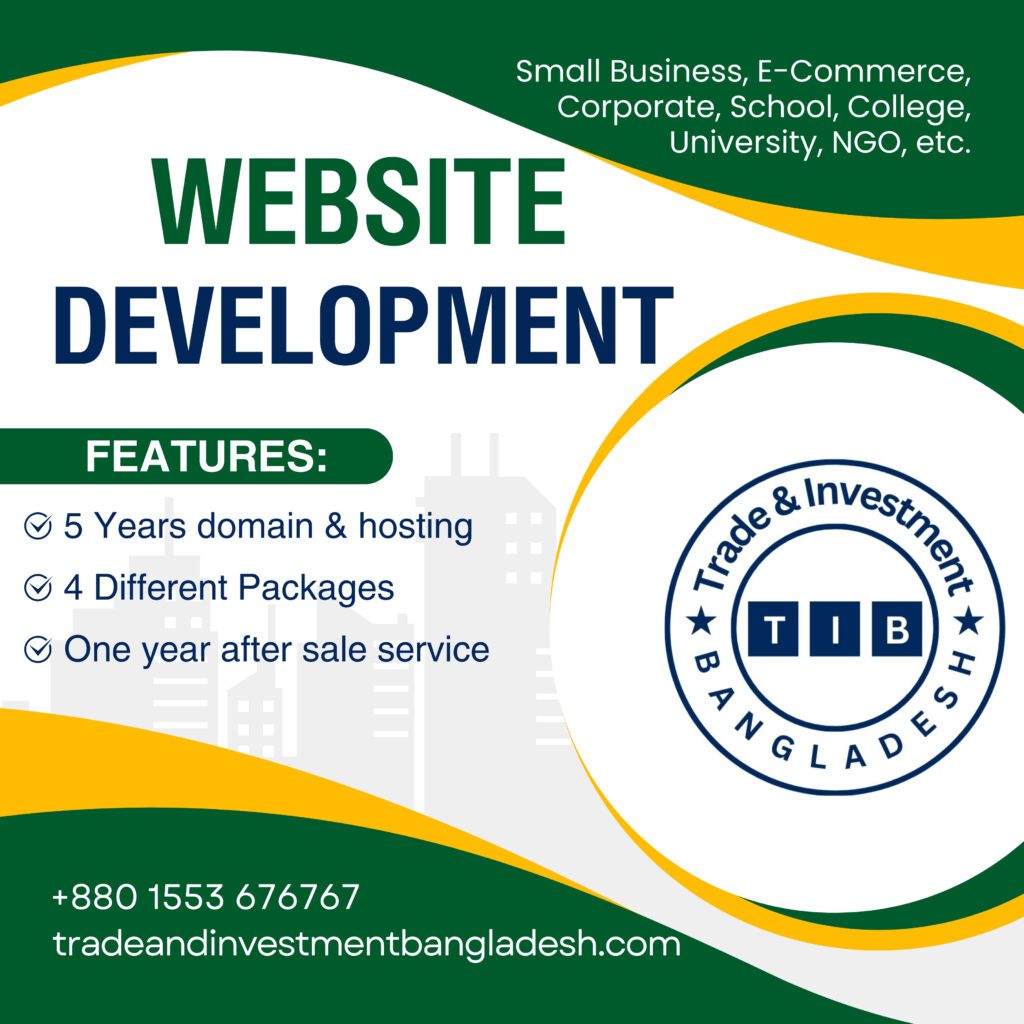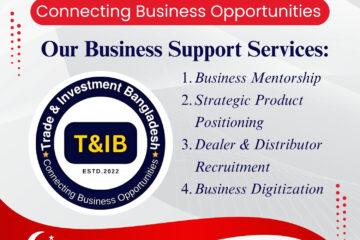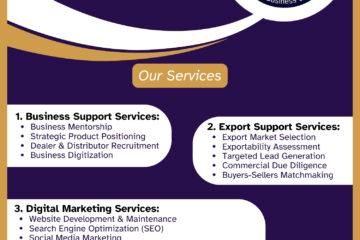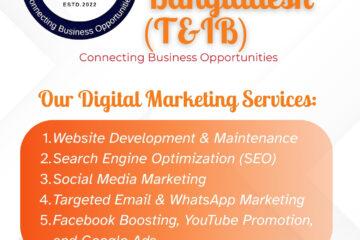Why Does Every Business Need a Website?
Md. Joynal Abdin
Founder & CEO, Trade & Investment Bangladesh
In the contemporary business landscape, where the digital realm reigns supreme, having a website is not just an option; it’s a necessity. Whether you run a small local enterprise or a multinational corporation, the benefits of establishing a robust online presence are undeniable. From enhancing visibility to fostering customer engagement, a well-designed website serves as the cornerstone of modern business strategies.
Necessity of Having a Website
- Global Reach: It transcends geographical boundaries, allowing businesses to reach audiences across the globe. With the proliferation of e-commerce, even small businesses can access international markets, expanding their customer base exponentially.
- 24/7 Accessibility: Unlike brick-and-mortar stores that adhere to fixed operating hours, it is accessible round the clock. This perpetual availability enables customers to browse products, make purchases, or seek information at their convenience, enhancing customer satisfaction and potentially increasing sales.
- Credibility and Professionalism: In the digital era, consumers often perceive businesses without a website as less credible or outdated.
- Cost-Effective Marketing: Compared to traditional marketing channels such as print media or television advertisements, digital marketing through a landing page is more cost-effective. Businesses can leverage search engine optimization (SEO), content marketing, and social media integration to attract and retain customers without incurring exorbitant expenses.
- Data Insights: It provides invaluable insights into consumer behavior, preferences, and demographics through analytics tools. By analyzing traffic, businesses can refine their marketing strategies, personalize user experiences, and make informed decisions to optimize performance.
Types of Websites
- E-commerce: E-commerce websites facilitate online transactions, allowing businesses to sell products or services directly to customers. They feature essential functionalities such as shopping carts, secure payment gateways, and inventory management systems. Examples include Amazon, eBay, and Shopify.
- Corporate: Corporate websites serve as the digital face of large organizations, providing comprehensive information about the company, its mission, products, services, and contact details. They often incorporate features like investor relations sections, career portals, and press releases.
- Portfolio: Portfolio websites showcase the work, achievements, and capabilities of individuals or creative professionals such as photographers, designers, artists, and writers. These visually appealing platforms serve as digital portfolios, allowing users to display their projects and attract potential clients or employers.
- Blog: Blog websites focus on publishing informative, entertaining, or educational content on specific topics or niche areas. They engage audiences through articles, images, videos, and interactive elements, driving traffic, and establishing thought leadership. Popular blogging platforms include WordPress, Medium, and Blogger.
- Community Forums: Community forums or discussion boards enable users to interact, share knowledge, and exchange ideas on specific topics or interests. These are foster a sense of community and engagement among like-minded individuals, facilitating discussions, troubleshooting, and networking.
Forms of Websites and Benefits
- Static: Static websites consist of fixed content that remains unchanged unless manually updated by the webmaster. While they are simple to create and cost-effective to host, they offer limited interactivity and dynamic functionality. They are suitable for businesses that require basic online presence without frequent updates.Benefits: Easy to develop and maintain, cost-effective hosting, fast loading times.
- Dynamic: Dynamic websites feature dynamic content that can be updated or customized based on user interactions or database queries. They employ scripting languages like PHP, ASP.NET, or JavaScript to generate personalized content, facilitate e-commerce transactions, or deliver dynamic user experiences.Benefits: Enhanced interactivity, personalized content delivery, scalability, and adaptability.
- Content Management Systems (CMS): CMS platforms like WordPress, Joomla, and Drupal provide tools and templates to create, manage, and update website content without extensive coding knowledge. They offer flexibility, scalability, and a wide range of plugins and themes to customize functionality and design.Benefits: User-friendly interface, rapid content updates, extensive customization options, and a vibrant community of developers.
- Mobile-Optimized: With the proliferation of smartphones and tablets, optimizing websites for mobile devices has become imperative. Mobile-responsive design ensures seamless browsing experiences across various screen sizes and resolutions, catering to the growing segment of mobile users.Benefits: Improved user experience, higher mobile search rankings, broader accessibility.

In conclusion, the significance of having a website for businesses in the digital age cannot be overstated. From expanding market reach and enhancing credibility to driving sales and fostering customer engagement, a well-executed website serves as a potent tool for achieving business objectives. By understanding the diverse types and forms available, businesses can harness the full potential of the digital landscape to thrive in an ever-evolving market.
Why Does Every Business Need a Website?
Mr. Md. Joynal Abdin is a Business Consultant & Digital Marketer based in Dhaka, Bangladesh. He is the Founder & CEO, of Trade & Investment Bangladesh and Co-Founder & CEO of Bangladesh Trade Center. Previously he served at Dhaka Chamber of Commerce & Industry (DCCI) as Executive Secretary; DCCI Business Institute (DBI) as Executive Director; SME Foundation as Deputy Manager; and the Federation of Bangladesh Chambers of Commerce & Industry (FBCCI) as Assistant Secretary.
The list of services Mr. Abdin is offering includes but is not limited to Business Mentorship, Business Research and Documentation, Export Market Selection and Product Positioning at Home and Abroad; Buyers-Sellers Matchmaking; Website Development; Search Engine Optimization (SEO); and Social Media Marketing etc.





0 Comments